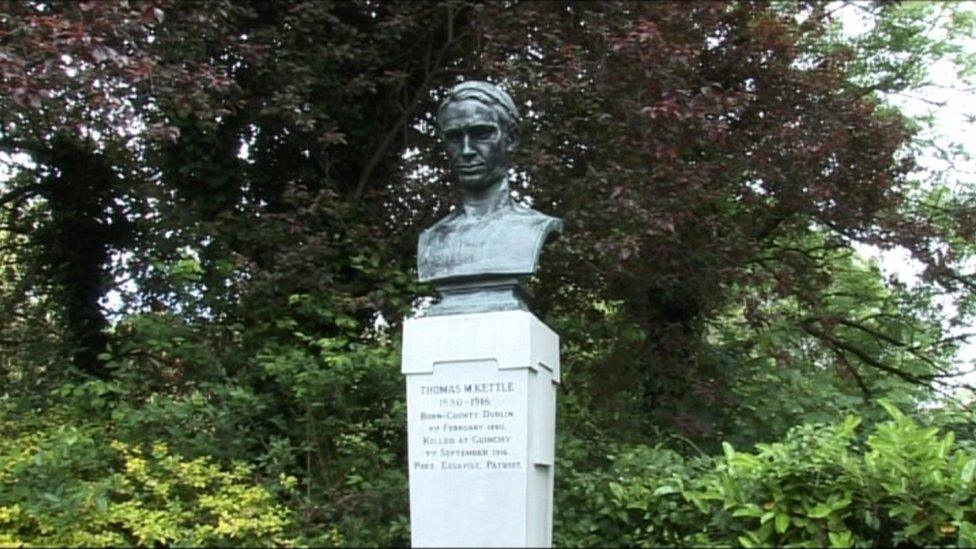Battle of the Somme: British and Irish soldiers unite for commemoration
- Published
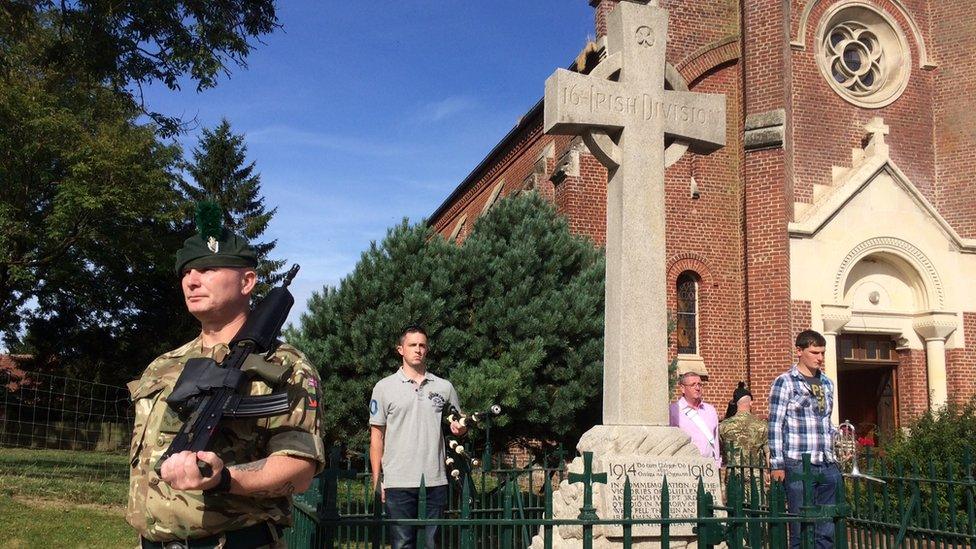
Soldiers from the British and Irish armies will take part in a ceremony commemorating the 16th Irish Division's role in the Battle of the Somme
The soldiers of the Royal Irish Regiment and the Irish Defence Forces march to a slightly different beat.
So, the last-minute rehearsal by the Centotaph guard was an important chance for both groups to be put through their paces in the village of Guillemont in France.
The British and Irish armies don't often find themselves as joint participants in ceremonial occasions.
But, here in the small rural village on the Somme, they have come together to remember the sacrifice of their military forebears a century ago.
On 3 September 1916, soldiers from the 16th Irish division of the British army fought a bitter battle to capture Guillemont from the Germans.
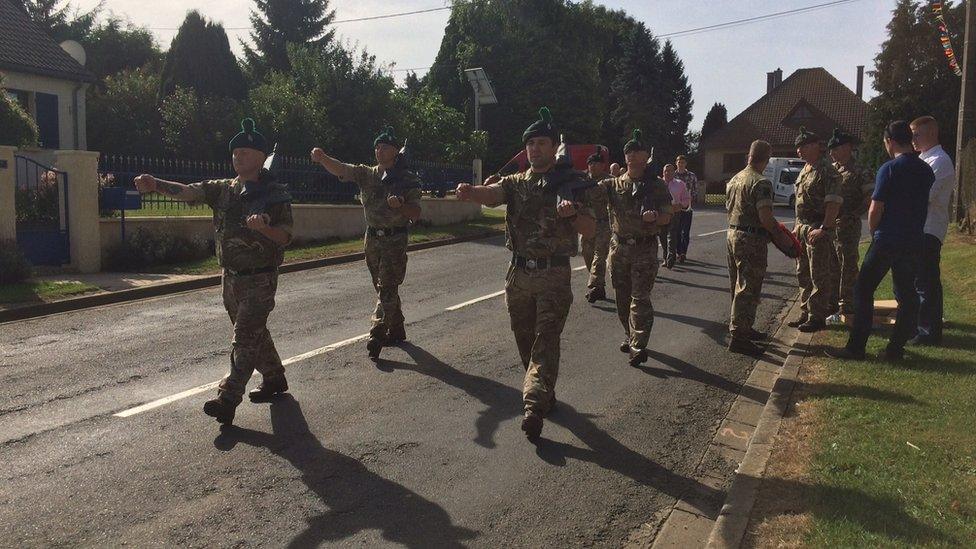
Soldiers rehearsing ahead of Saturday's commemoration ceremony
The men came from all over Ireland and were attached to several famous Irish regiments.
There were volunteers from the Bogside in Derry, Falls Road in west Belfast and others from the far-flung regions of Ireland.
Also in the ranks were members of the national volunteers, formed to support Home Rule, who had answered John Redmond's call for Irishmen to fight in the Great War.
Some fought for King and country, some fought for Ireland and the promise of Home Rule and the regular soldiers fought because it was their job.
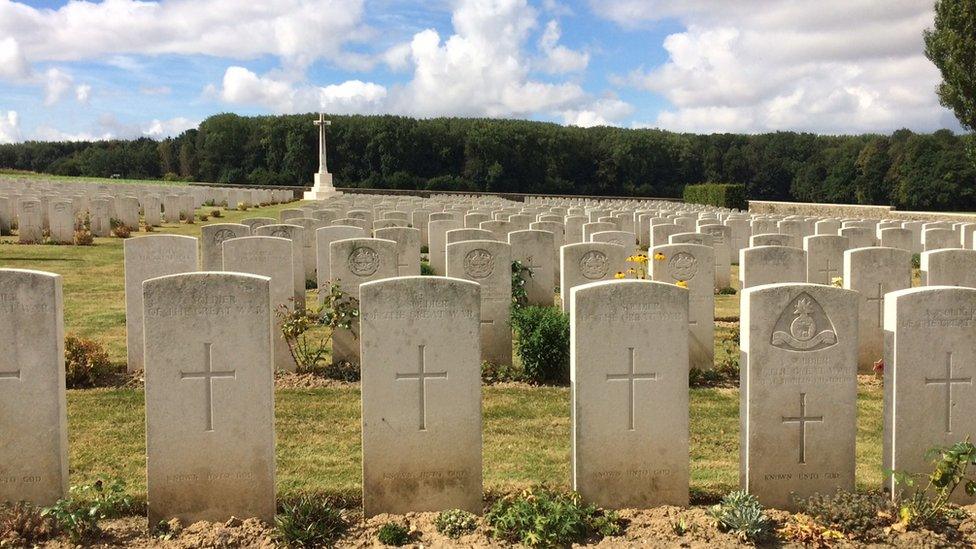
About 4,300 soldiers were killed in the assaults on Guillemont and Ginchy over a six-day period
All of that history was likely going through the mind of the young Irish and British soldiers as they rehearsed the ceremony on Friday.
They marched outside the village's Catholic Church, beside where the granite Celtic cross memorial is located.
Those I spoke to acknowledged the uniqueness of the occasion and also the fact that it could happen.
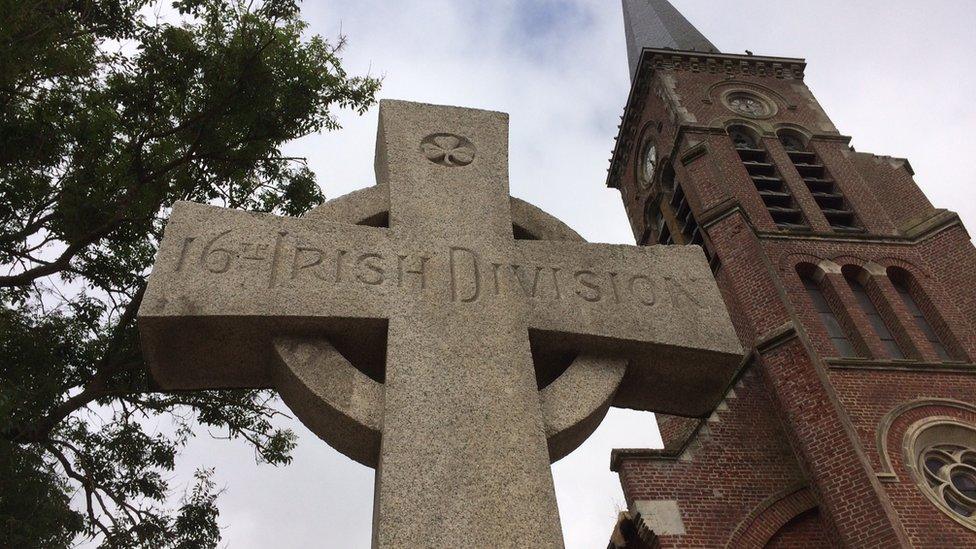
The cross in Guillemont commemorating the 16th Irish Division
So much has changed in Ireland since 1916. So much has changed in relations between the Republic and the UK in more recent years.
The two armies will be as one for a time on Saturday while their respective politicians pay tribute at the 16th Irish Division's cross of commemoration.
The Republic's representatives will lay laurel wreaths, the British will lay poppies.
Whatever shape the tribute, the sentiment is the same - remembering those young men from the island of Ireland who died fighting on the muddy, pockmarked battlefields of France.
- Published1 July 2016
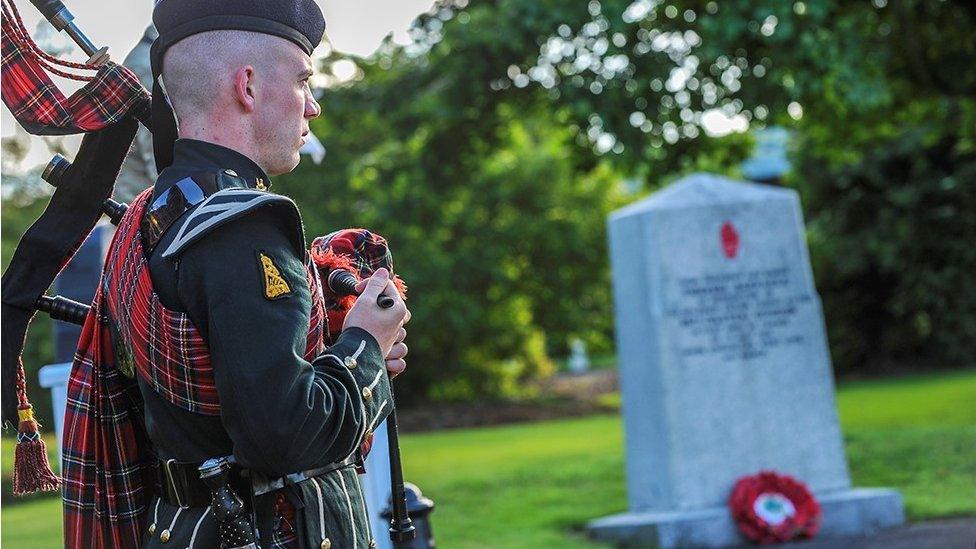
- Published30 June 2016
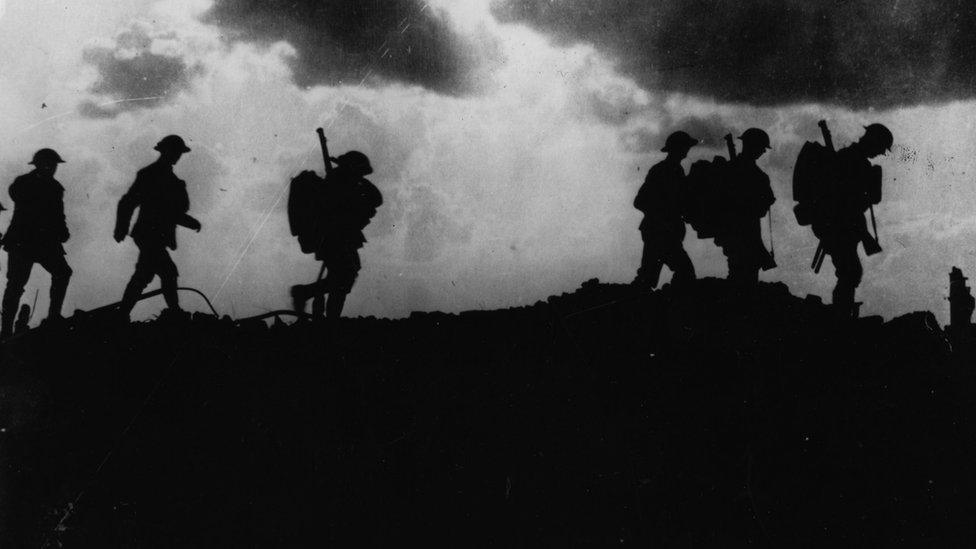
- Published29 June 2016
